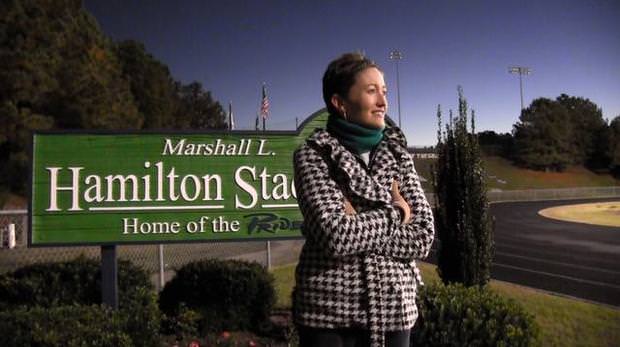
This story was originally published in the News & Observer on February 21, 2015.
I am the product of the time in North Carolina when we invested in our young people through public education. My grandparents were minimum-wage textile workers; none enjoyed the benefit of a high school education. My parents graduated from secondary school but had to get right to work upon graduation.
By the time I was in high school, North Carolina was investing in the future. I had the most inspiring, innovative and experienced teachers in public school. They challenged me and made me hungry to be like them – their command of their subject, love of language, excitement about learning and the creativity they brought into the four walls of our classroom were infectious!
When I graduated high school, I had great grades but no college fund. Again, North Carolina invested in me, offering me a full scholarship to UNC-Chapel Hill if I would agree to teach for four years.
When I began teaching, North Carolina was still there, prodding me to further personal growth and improvement. There were financial incentives to get a master’s degree, and I did. There were financial incentives to get Nationally Board Certified, and I did. Through those experiences, I honed my craft and deepened my subject knowledge. I learned that great teaching was not about what I was doing in the classroom every day. It was about what my students were doing.
For 22 years, I have been evolving to better meet the needs of my students and to prepare them to be the most productive and capable generation possible.
But North Carolina is no longer investing in our students. It is evident everywhere my students turn. They hear the drips from the leaking windows in my trailer when it rains. They feel it in the lightness of their book bags when they have no textbooks to take home. In many schools, there are not even teachers in their classrooms. So many have left, and so few are preparing to enter the profession, that vacancies cannot be filled. There are no scholarships to encourage promising students to become teachers. And veteran teachers are retiring at a fast clip.
The new grading system is being used to convince the public that public schools are “failing,” but those grades simply reflect the same inequalities I see in my classroom. Is it surprising when the student who comes from wealth and privilege achieves and the chronically poor student struggles? No. But do we slap an F on a poor student and publicly embarrass him in the media? Will that inspire a student to improve? No. You offer that child extra help and support, you encourage him and celebrate every little success along the way to higher achievement.
And that is what North Carolina should be doing for our most vulnerable students in our poorest counties. Instead, state actions took away 6,000 teaching positions, more than 3,000 teacher assistants, cut per pupil spending, gave us a new curriculum but no textbooks or technology, administered one standardized test and declared many of our poorest schools to be “failing.” If I graded my own students this way, providing less support and administering one test counting 80 percent of their grade, I should be fired.
Instead, the state is trying to convince the public to lose faith in public schools and to start moving their kids to charter and private schools where teachers do not have to be certified, where financial accountability is lacking and where profits can be made off of our children.
Public school teachers have been accused of many things in this political climate, but desiring a profit is not one of them. In fact, our teachers are the only state employees who no longer receive longevity pay. And based on the recent uneven pay raises for teachers, I seem to be in the one profession where experience is a liability.
I wonder whether a young teacher would even speak publicly. I, for now, at least have due process rights. I can be fired, but there has to be a reason. My colleagues with less than five years of experience have no such assurances. They are basically seasonal employees, with no guarantee of having a job in any given year. I wonder how that single fact would have affected the whole trajectory of my career. Would I have invested my blood, sweat and tears in my school the way I have? Would I have bought the shirt, jackets, shoes, socks and watch in my school’s colors? Would I have invested in my students personally, knowing I might not be there for years to see them develop? Would I be planning the 20th reunion for the Class of 1995? I don’t think so.
In that I hope is the evidence of how drastically and fundamentally state lawmakers are shifting the very foundations our state’s future is built on. It is subtle, and it is complicated, but we are no longer investing in our children the way we should be. Our children are not failing; we are failing our children. Let’s stop the unfair grading and start investing in our kids and our future again.
Recommended reading


